* payable only to members outside Hong Kong who
are co-opted and do not serve on UGC/RGC proper
The rates were originally approved by the Legislative Council
and are adjusted by the Government according to an
approved formula.
|
UGC Funding to Institutions
|

UGC funding for the UGC-funded institutions is composed of
recurrent grants and capital grants.
Recurrent grants support institutions' academic work and related administrative activities; and capital grants are used to finance major works projects and minor campus improvement works.
Recurrent Grants
The recurrent funding for the 2009/10 to 2011/12 triennium was approved by the Finance Committee of the Legislative Council in January 2009. The total approved recurrent funding for the UGC-funded sector in the triennium amounts to $33,992 million, covering both block grants and earmarked grants.
The bulk of the recurrent grants are disbursed to institutions normally on a triennial basis to tie in with the academic planning cycle, and in the form of a block grant to provide institutions with maximum flexibility in internal deployment. Once allocations are approved, institutions have a high degree of freedom in deciding on how the resources available are put to best use. Determination of the grants to institutions is largely based on an established formula. The amount of block grants comprises three elements:
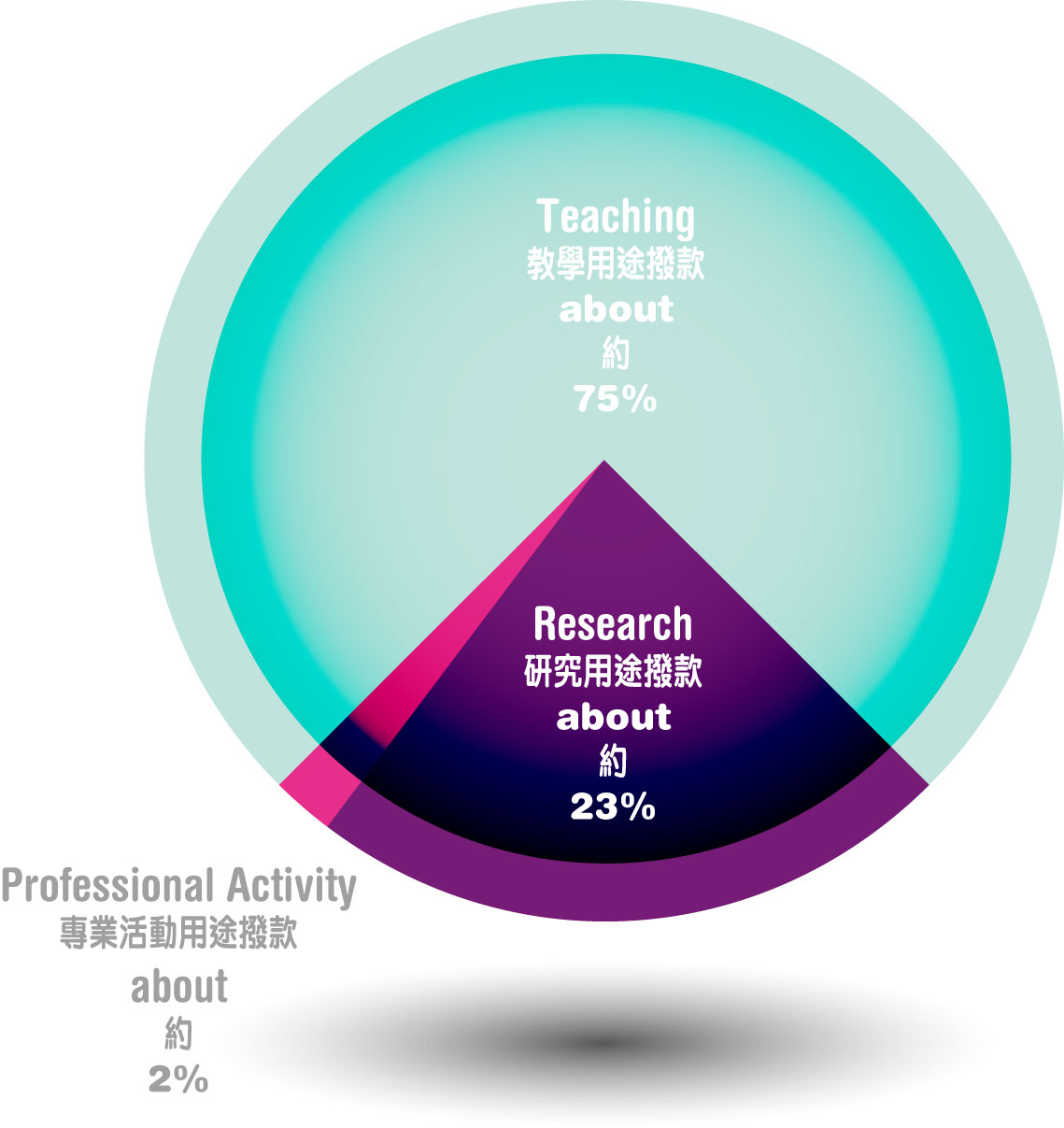
|
Teaching (about 75%)
The Teaching element is based on student numbers, their levels (i.e. sub-degree, undergraduate, taught postgraduate and research postgraduate (RPg)), mode of study (i.e. part-time and full-time) and disciplines of study. Some subjects are more expensive than the others because they require special equipment, laboratories, more staff time, etc. Relative cost weightings by broad academic programme categories (APCs) have been grouped into three price groups with effect from the 2005/06 to 2007/08 triennium. Details are shown at Chart 1.
|
|
Chart 1: Relative Cost Weightings by Price Groups of Academic Programme Categories
|
|
|
Relative Cost Weightings
|
|
Academic Programme Teaching Research
Categories (APCs)
|
Price Group of APCs
|
Teaching Programme
|
Research Programme
|
| 1 |
Medicine |
A |
Medicine & Dentistry |
3.6 |
1.8 |
| 2 |
Dentistry |
|
|
| 3 |
Studies Allied to Medicine and Health |
B |
Engineering & Laboratory Based Studies |
1.4 |
1.4 |
| 4 |
Biological Sciences |
|
| 5 |
Physical Sciences |
|
| 6 |
Engineering and Technology |
|
| 7 |
Arts, Design and Performing Arts |
|
|
| 8 |
Mathematical Sciences |
C |
Others |
1.0 |
1.0 |
| 9 |
Computer Science and Information Technology |
|
| 10 |
Architecture and Town Planning |
|
| 11 |
Business and Management Studies |
|
| 12 |
Social Sciences |
|
| 13 |
Law |
|
| 14 |
Mass Communication and Documentation |
|
| 15 |
Languages and Related Studies |
|
| 16 |
Humanities |
|
| 17 |
Education |
|
|
Research (about 23%)
The Research element is primarily related to the research performance of academic staff, and the cost of research in respective fields. The number of active research staff in each cost centre is identified in the context of a Research Assessment Exercise which assesses the research performance of different cost centres within institutions.
|
|
Professional Activity (about 2%)
The Professional Activity element is associated with professional activities expected to be undertaken by all members of academic staff. These include, for example, community service undertaken and advice rendered on societal or professional issues. It is calculated based on the number of academic staff.
|
The funding formula is the key parameter used to assess institutions' needs. But in finalising its funding recommendations, the UGC also takes into account the special needs of individual institutions and other factors not captured by the formula and will introduce extra-formulaic adjustments where required.
Earmarked grants for specific purposes are allocations outside the block grant system. Examples are the earmarked research grants, grants for knowledge transfer activities, and grants for areas of excellence scheme.
Once determined, recurrent funding for a triennium will not be adjusted during the period except for adjustments to take into account changes in the indicative tuition fee levels, new initiatives from the Government and civil service pay adjustments. Following the civil service 2009 pay cut, 2010 and 2011 pay rise which took effect from 1 January 2010, 1 April 2010 and 1 April 2011 respectively, the subvention for 2011/12 was increased by approximately $450 million.
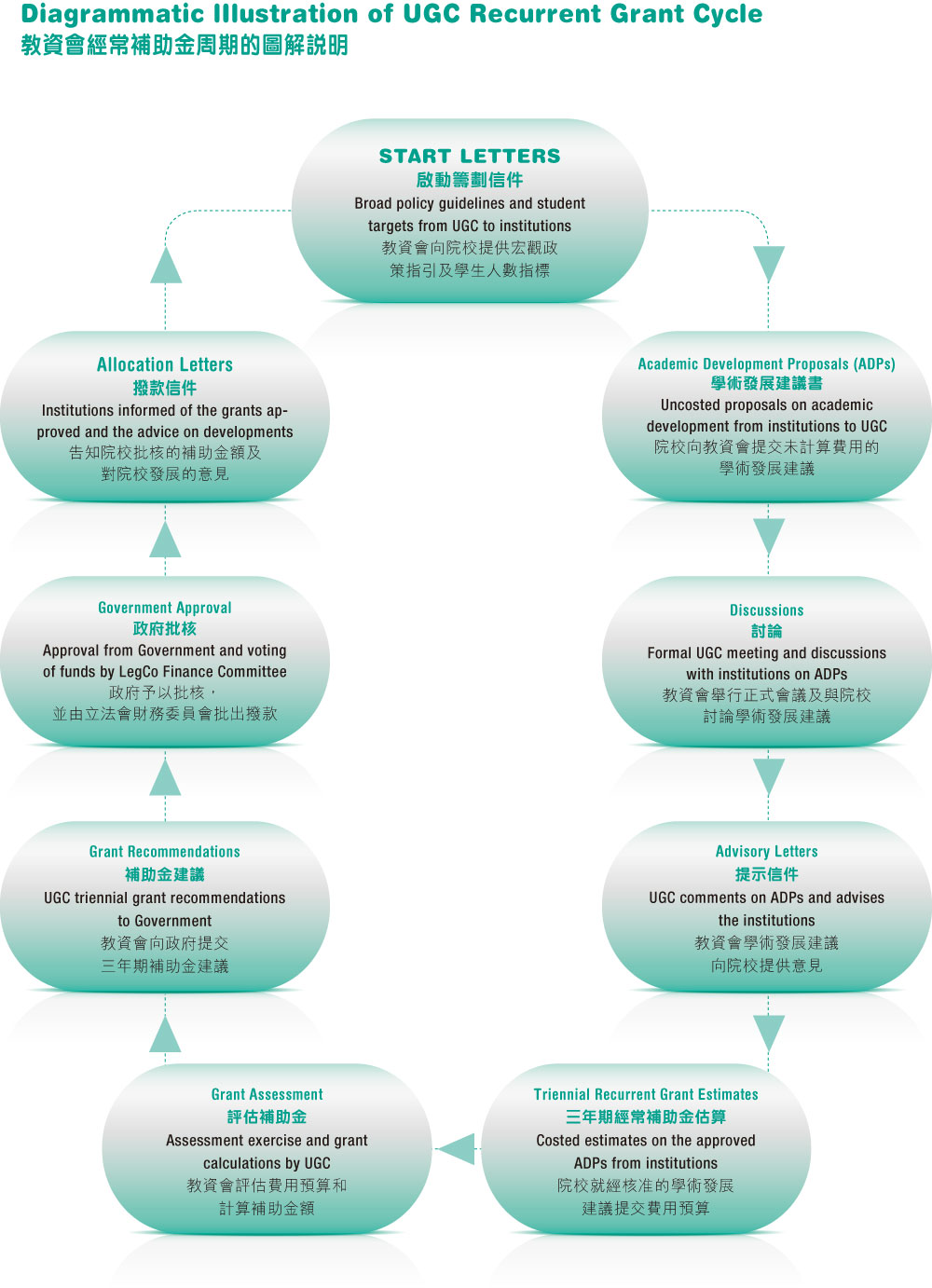
Financial Reporting and Monitoring
The UGC-funded institutions are autonomous statutory bodies governed by their respective Ordinances. They enjoy institutional autonomy in such areas as curriculum design, selection and recruitment of staff and students, and internal allocation of finances.
To provide institutions with substantial financial freedom, the bulk of the subvention to institutions are in the form of the block grant, which provides for a "one-line" allocation of resources for a funding period (usually a triennium) without prescription attached as to how it should be spent. The major requirement is that such grant must be used within the ambit of "UGC-fundable activities" while adhering to approved student number targets. The precise amount of the block grant has to be approved by the Finance Committee of the Legislative Council before the start of every triennial funding period, after which the responsibility falls squarely upon the institutions to apply those funds appropriately.
Institutions are accountable for any unspent balances of the public funds
While respecting the institutional autonomy of our funded institutions in allocating and managing their internal finances, the UGC adopts an accountable and transparent approach in ensuring the public money entrusted to the institutions are applied meaningfully and provide value for money. Institutions are entitled to maintaining a general reserve of up to 20% of the institution's total approved recurrent grants (excluding any earmarked grants) in a triennium for future and new development needs, any excess of that level has to be returned to the UGC. The use of the general reserve is subject to the same rules and regulations governing the use of recurrent grants. For grants earmarked for specific purposes, any amount unspent after the close of financial year or approved funding period must be returned.
Institutions provide regular reports on their finances to the UGC
Institutions submit for each financial year an annual return on the use of all UGC funds. Heads of Institutions also provide a Certificate of Accountability to the UGC annually to confirm that the public funds allocated via the UGC have been spent in accordance with the rules and guidelines as agreed with the UGC
No cross-subsidisation of UGC resources to non-UGC-funded activities
Recurrent grants are provided to the UGC-funded institutions to support their academic and related activities based on approved UGC-funded activities. As such, there should be no cross-subsidisation of UGC resources to non-UGC-funded activities (including, but not limited to, self-financing activities). To avoid hidden subsidy to non-UGC-funded activities, the institutions should levy overhead charges on such activities, including projects funded by other Government departments/agencies and projects/programmes conducted by their self-financing subsidiaries or associates.
Institutional finances are subject to professional accounting standards and external audit processes
Institutions are required to keep proper accounting records in accordance with the Hong Kong Financial Reporting Standards and the house guidelines on recommended accounting practice adopted by the UGC where appropriate. Institutions also arrange their own external annual audits on their financial statements and the annual return, in accordance with prevalent assurance engagement standards adopted by the audit profession. For the purpose of efficient use of public funds, institutions are also subject to examination by the Director of Audit.
Financial Affairs Working Group
From time to time, the UGC may express interest in the financial well-being of UGC-funded institutions and enquire on specific financial issues concerning the UGC sector. The UGC established a Financial Affairs Working Group in January 2011 with professional expertise to work with institutions to help ensure their continuing good financial governance and sound financial planning.
Capital Grants
The UGC supports capital works projects of institutions for UGC-approved activities by capital grants sought from the Government on an annual basis under the Capital Programme, and the Alterations, Additions, Repairs and Improvements Programme. Details of the two capital grants programmes are illustrated in the flowcharts below:
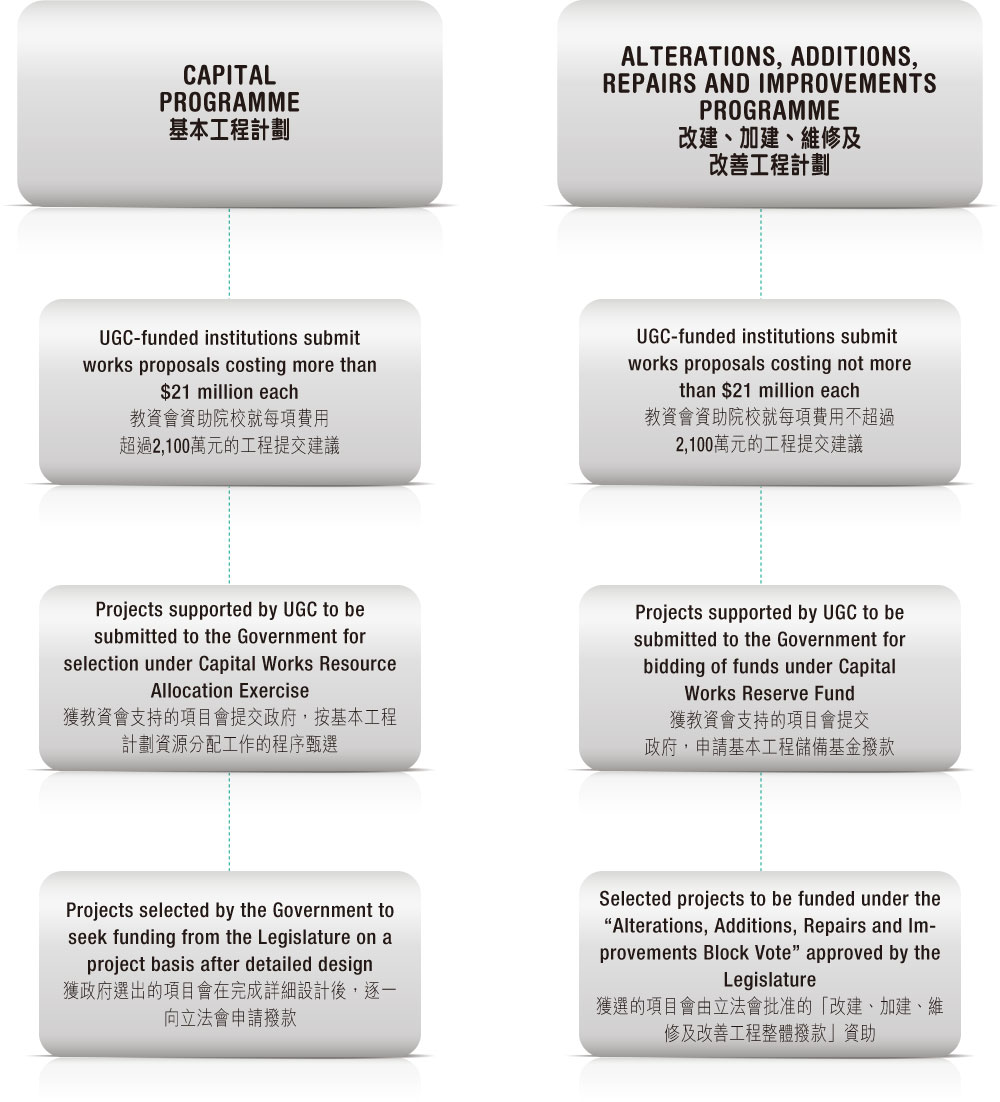
In 2011-12, there are 25 ongoing capital works projects under the Capital Programme with a total estimated project cost of some $12.2 billion. The expenditure on these projects in 2011-12 was about $3.6 billion. With the completion of superstructure works of most projects, the spending in 2012-13 is anticipated to decrease to some $2.8 billion.
In 2011-12, the UGC supported a total of 28 new Alterations, Additions, Repairs and Improvements (AA&I) projects submitted by institutions with a total estimated cost (to be spread over up to three years) of some $440 million. To meet the expenditure of the ongoing and newly approved projects in 2011-12, a total of $444 million was allocated to institutions. The allocation will be increased to some $458 million in 2012-13 as institutions carry out more major spatial reorganization works to prepare for the new four-year academic structure.
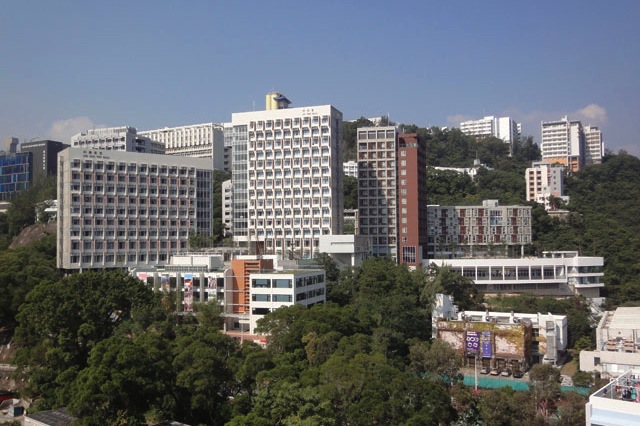
CUHK's newly completed student hostels
|
|
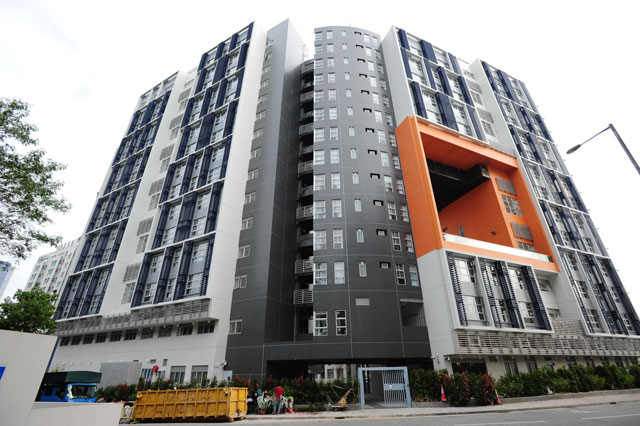
CityU's newly completed Student Hostel Phase 4
|
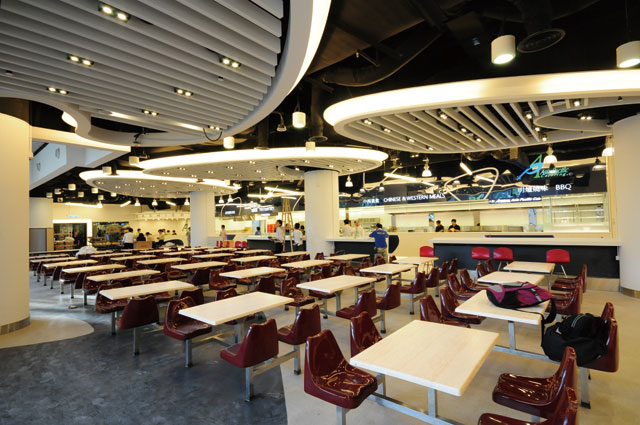
HKUST's newly renovated catering facility
|
|
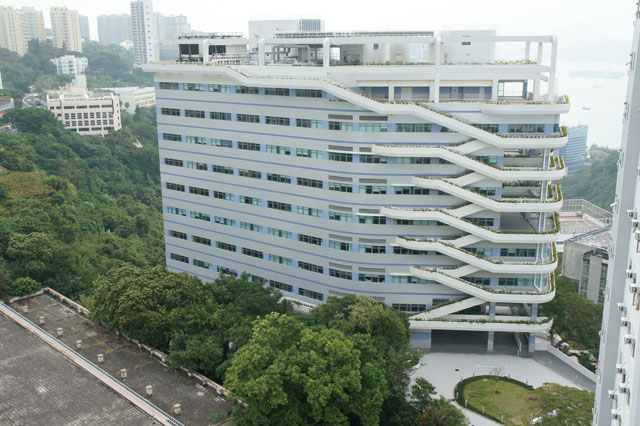
HKU's newly completed Human Research Institute
|
Financial Reporting and Monitoring
The capital grants are charged to the Capital Works Reserve Fund and are part of the Capital Works Programme of the Government. Institutions' projects under capital subvention follow the procedures for creating and managing a capital works project under the Capital Works Programme. Institutions assume full responsibility and accountability for their projects under capital subvention. They should ensure that works expenditure stays strictly within the approved project estimate in accordance with the approved project scope i.e. the scope approved by the Legislative Council for capital works projects exceeding $21 million, and the scope approved by the UGC for Alterations, Additions, Repairs and Improvements projects up to $21 million.
Institutions have in place an appropriate system of cost control and monitoring mechanism for overseeing the spending of public money having regard to economy, efficiency and effectiveness in the delivery of their projects. In particular, institutions have to ensure proper procurement procedures are in place, taking reference from Government's latest rules and regulations applicable to public capital works.
Approved funds for the projects are released to the institutions on a monthly basis. Institutions are required to submit a monthly statement on the financial position and a quarterly report on the progress of their projects. Upon completion of a project, the institution will submit a certified statement of final accounts to the UGC and return any unspent balance or unapproved expenditure to the Government. For the final accounts of capital works projects, a separate assurance engagement should be carried out by an external auditor engaged by the institutions.
|
Communications/Interface with
Stakeholders
|

We attach great importance to enhancing communications with our stakeholders so they can understand accurately the functions and operation of the UGC, and for the UGC to get to know our stakeholders' views on its decisions and policies. There is a wide range of stakeholders in higher education – the institutional management, staff and students, the Government and Legislature, the media and the community at large. The UGC works in close partnership with stakeholders on sector-wide issues, including resource allocation and strategic development. Effective communication with stakeholders brings transparency and accountability.
The UGC's Communications Group looks into all matters concerning public relations and publicity in respect of the activities of the Committee and the UGC-funded sector, with the objective of fostering better understanding and communication. Effective communication with the various stakeholder groups often takes different forms. The Group continues to devise plans and undertake a range of activities to enhance our stakeholder relations, including:
Institutional Management
The UGC works closely with institutions and have meetings – regular and ad hoc, formal and informal – with the Council Chairmen, Heads and Vice Presidents of the eight funded institutions to exchange our thinking and suggestions on various subjects of mutual concern. In 2011, the Chairman, UGC met with the senior management in each of the eight institutions to listen to their views on issues related to the higher education sector.
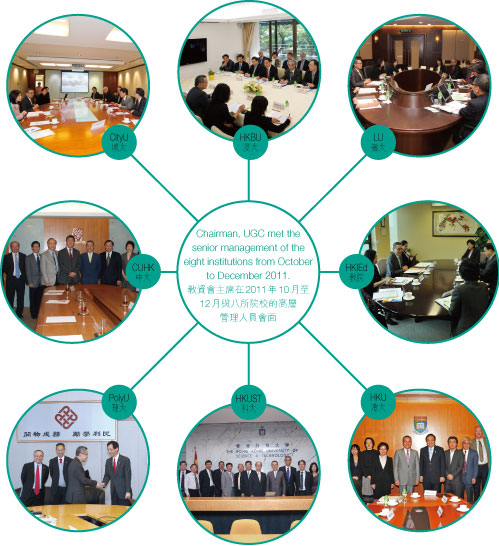
Students
Students are the ultimate beneficiaries of our work and the public investment. Their views are very important to the UGC. Members of the UGC visit the eight institutions on a regular basis, of which an important part is to meet with the students. In 2012, UGC Members as a group visited HKBU and HKUST and there are plans for the UGC to expedite such an important opportunity to visit institutions.
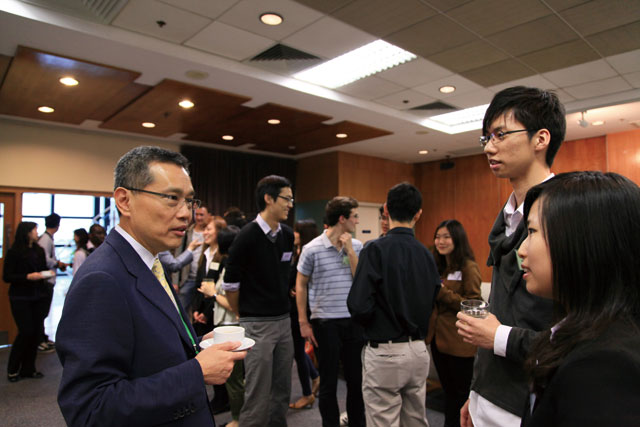
|
|
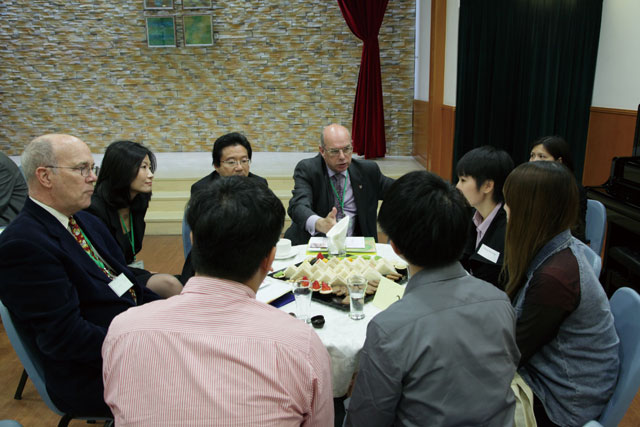
|
|
UGC Members visited HKUST (left) and HKBU (right) and met their students in April 2012
|
Since 2004, the full UGC has been meeting student representatives of all UGC-funded institutions every year to exchange views on various topics of mutual concern. There is no set agenda for these meetings and we endeavor to conduct the meetings in a more relaxed and friendly environment to encourage freer and more interactive exchange between UGC Members and students.
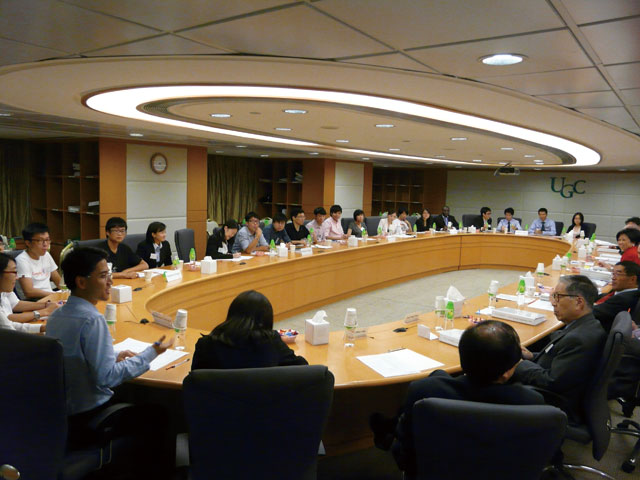
|
|
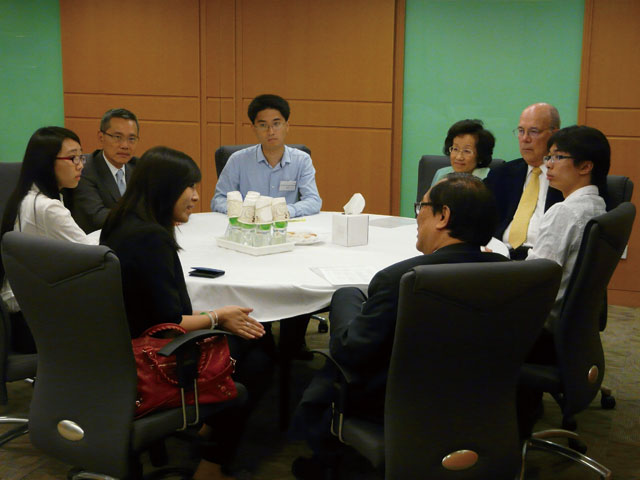
|
|
UGC meeting with student representatives in September 2011
|
Legislators
The UGC welcomes the opportunity to work with and explain aspects of our work to the Legislative Council. Informally, the Chairman, UGC met with members of the Legislative Council Panel on Education in October and November 2011 to listen to their views on various topics in relation to higher education. We also attend meetings of the Panel from time to time to explain our work. In the period of November 2011 to January 2012, we attended before the Panel a few times to explain the UGC's recommendations on triennium funding for 2012-15 and the follow up of the HER Report.
The Community
With escalating public expectations on the responsiveness of public agencies, the cyber network allows us to gather and disseminate information in a more timely and instantaneous fashion. Given that the younger generation in particular are more inclined to expressing their ideas online, the UGC sees the Internet as a good means of communication, on top of conventional channels. The UGC website describes our roles, membership, activities, and the latest news. It includes also a "Frequently Asked Questions" section and a Higher Education Forum, through which we welcome all parties including students and staff to leave messages and share their opinions on the work and policies of the UGC. In addition, to provide more timely information and address key concerns about our work, we launched a UGC Internet Blog in June 2010 and publish regular articles on a newspaper column. These initiatives have enhanced and facilitated a more accurate understanding of UGC policies and practices by our stakeholders.
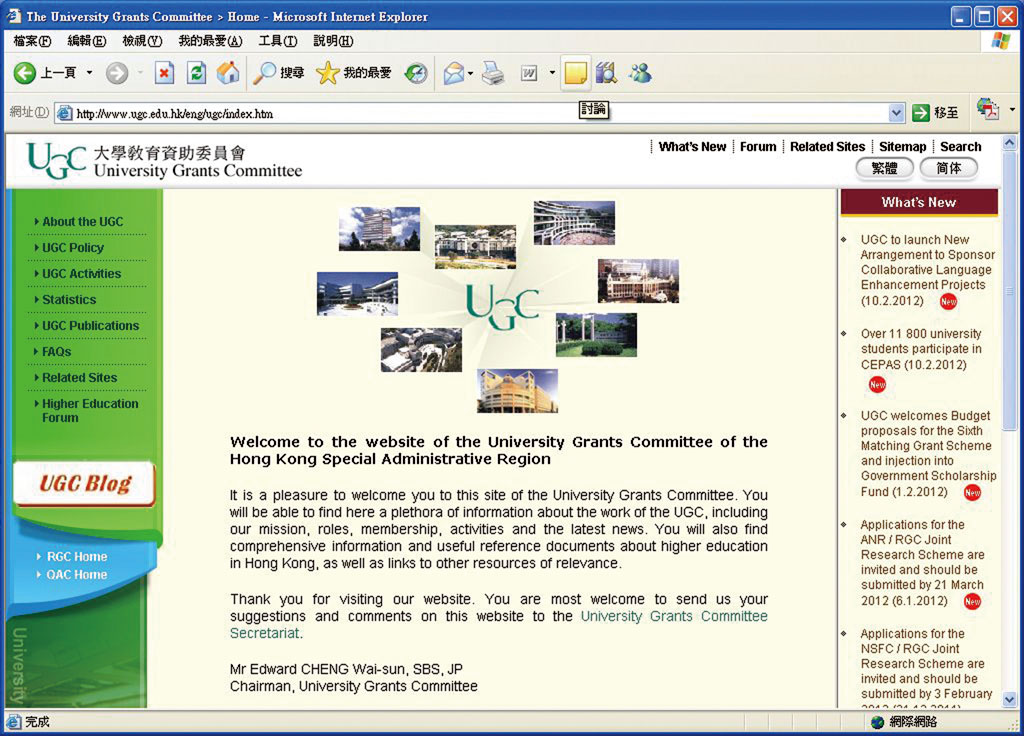
At the same time, the UGC also holds regular briefings with the media after every UGC meeting, where the Chairman, UGC briefs the media to keep them informed of the latest decisions and deliberations of the Committee.
The UGC is committed to openness, transparency and accountability in promoting excellence in Hong Kong's higher education sector. To reach this goal, we will continue to explore more effective and innovative ways to communicate with our various stakeholders, and continually seek ways to foster better understanding and engagement with the community.

Dr Richard Armour
Secretary-General
University Grants Committee



